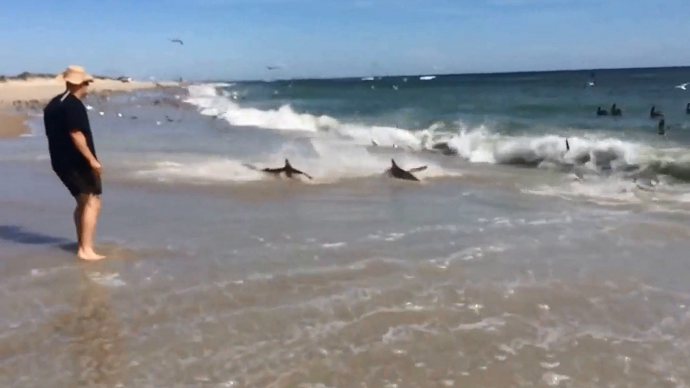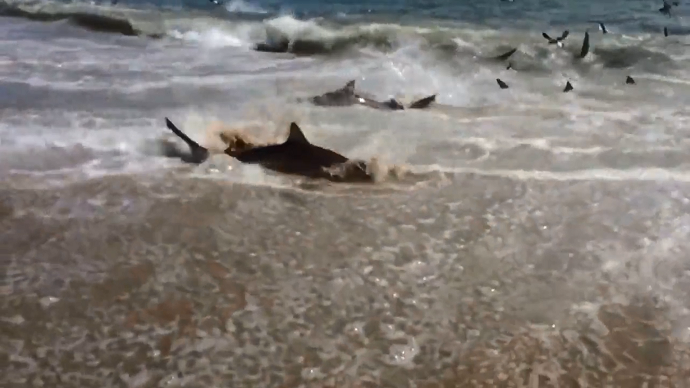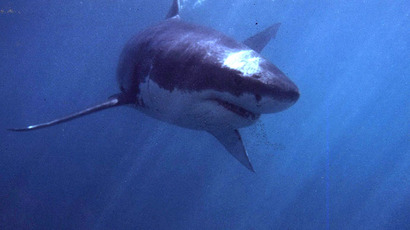We’re going to need a bigger beach: Sharks come ashore during massive feeding frenzy (VIDEO)

In a scene resembling one's worst nightmare, a large group of sharks washed up on a North Carolina beach during a feeding frenzy last Thursday. The Sharknado-esque episode was all caught on video.
The incident was witnessed by leaders of the One Harbor Church retreat as they went out to fish at Cape Lookout National Seashore, a 56-mile stretch of preserve in the southern Outer Banks of North Carolina.
“The men were out fishing for the evening’s dinner when they stumbled across more than 100 sharks attacking a school of blue fish,” Brian Recker posted on YouTube. “As seagulls and pelicans joined in on the meal, the men began to cast into the surf, catching fish without the use of bait.”
“For more than five minutes, the sharks were observed swimming in and out of the surf, some of which became beached in the fury,” he added.
As the scene unfolded, Donnie Griggs – an avid waterman who often spearfishes, dives, swims, and surfs at Cape Lookout – captured the dramatic footage.
The fish apparently ran out of ocean while trying to escape the feeding frenzy, the Huffington Post reported.
“We want it to be clear that Cape Lookout and the surrounding beaches of Eastern North Carolina are extremely safe for swimming,” Recker wrote. “The presence of these sharks and large schools of fish is actually a sign of a very healthy ecosystem.”
That assurance did not comfort Nate Scott of USA Today’s For the Win blog.
“Yeah OK pal. I know what I just saw with my own two eyes. The sharks are beaching themselves they’re in such a frenzy for feeding, and you want me to throw on my swimmies and jump in?” Scott noted. “No thank you. I’ll be safe here on land where I belong.”

But Pete Thomas at GrindTV sided with Recker, though he pointed out that the spectacle was an unusual one.
“While it’s common for several species of East Coast sharks to pursue prey along beaches, it’s rare to see the predators beaching themselves almost to the point of not being able to make it back into the water,” Thomas wrote.














